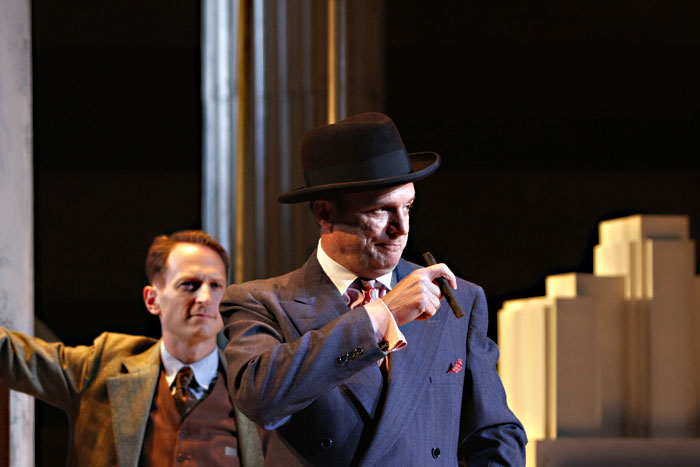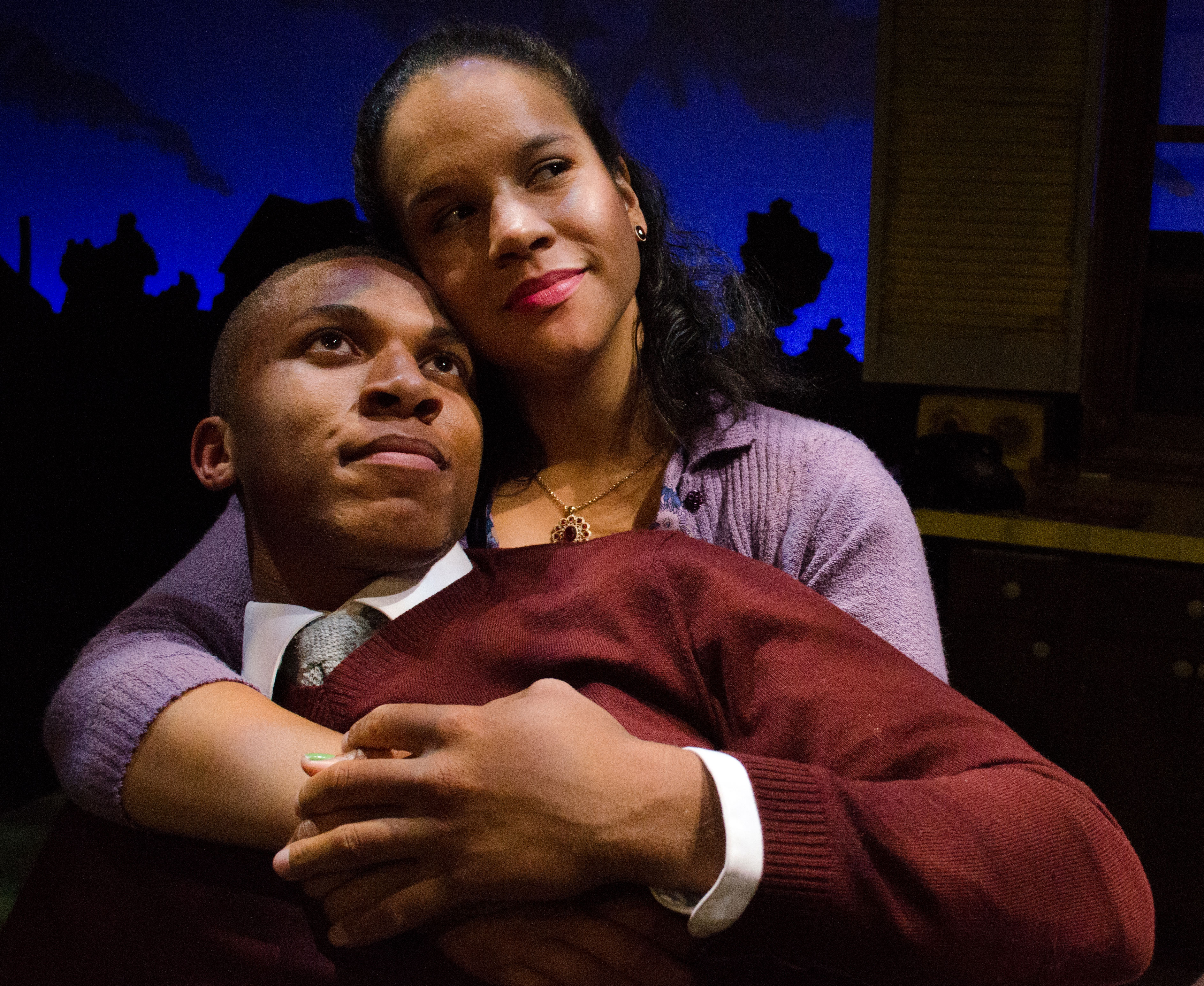As if being pummeled by a succession of devastating storms weren’t enough, Louisiana has now apparently aroused the ire of Intiman, which takes aim at the home state of David Duke and Ray Nagin for the second time in a season. Having pinioned the family with its largely satisfying production of A Streetcar Named Desire last summer, the theater is now presenting All the King’s Men, another indictment of Louisiana’s moral lapses—this time writ large against a backdrop of politics and populism via Adrian Hall’s rendering of Robert Penn Warren’s original novel.
All the King’s Men runs at least as closely parallel to the story of Depression-era politician Huey P. Long as Citizen Kane does to the biography of William Randolph Hearst. They’re both stories of hardscrabble, capable, and upstanding men who fall victim to soaring megalomania and are finally broken on the wheel of their own hubris. Warren’s 1946 book is a sprawling and unwieldy tale, spanning decades as it relates the rise and fall of underclass tribune Willie Stark (played here by John Procaccino) as seen through the eyes of his journalist pal, Jack Burden (Leo Marks).
There’s much to commend this staging of Hall’s 1987 adaptation. Songs by Randy Newman dependably evoke a Southern swelter and guilelessness (one tune is simply called “Rednecks”) that help the story take root. The players and vocalists move seamlessly between musical and dramatic moments; they perform more as a community expressing itself in song than as an overrehearsed choir. The effect is palpable.
But this All the King’s Men too often sags under the weight of its own grandiosity. There’s a great deal of epic scene-making, not much in the way of human connection. Without characters to elicit compassion, the audience is left watching a very impressive spectacle at an emotional remove. Since this closely mirrors the story being told (i.e., Burden’s study of Stark), it’s appropriate to ask whether this is one of director Pam MacKinnon’s intentions, or just a limitation of the text.
Still, there are flashes of brilliance throughout. Procaccino (who could pass for kin to Lee Atwater, the famous gutter populist and GOP mastermind) lights up the stage with blazing flights of oratory. The night’s best dramatic moment comes early, when Stark realizes he’s been duped into a three-way race he has no chance of winning. Marks is sardonic and detached as Burden the scribe. Philip Davidson, Eddie Levi Lee, and Peter Dylan O’Connor round out a core group of terrific supporting players. Among the singing cast members, Deirdre Madigan tweaks that sweet spot between the blues and Patsy Cline in a solo that ought to be recorded for posterity.
Tony Cisek’s utilitarian set involves a scaffolding stage with Greek columns in the foreground and a suggestion of Old Glory towering subliminally behind. It’s an apt visual metaphor for the production (and the state of the nation ): Are we in the act of creating something new and ideal, or tearing down something that was once great and noble?








